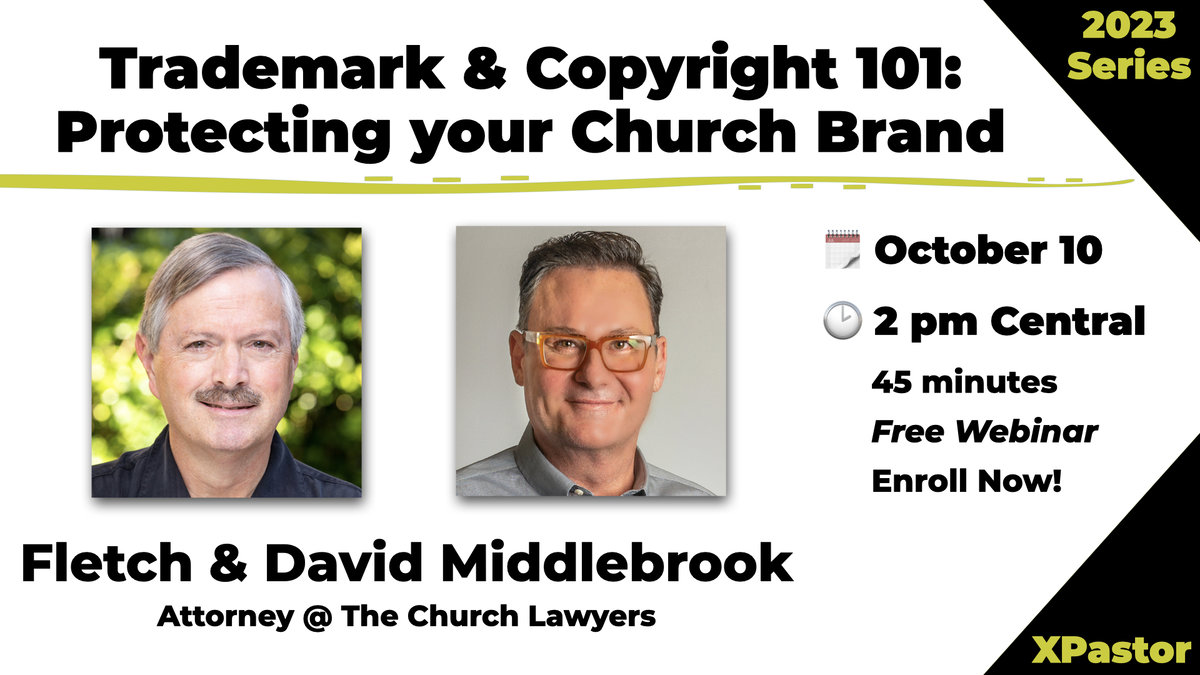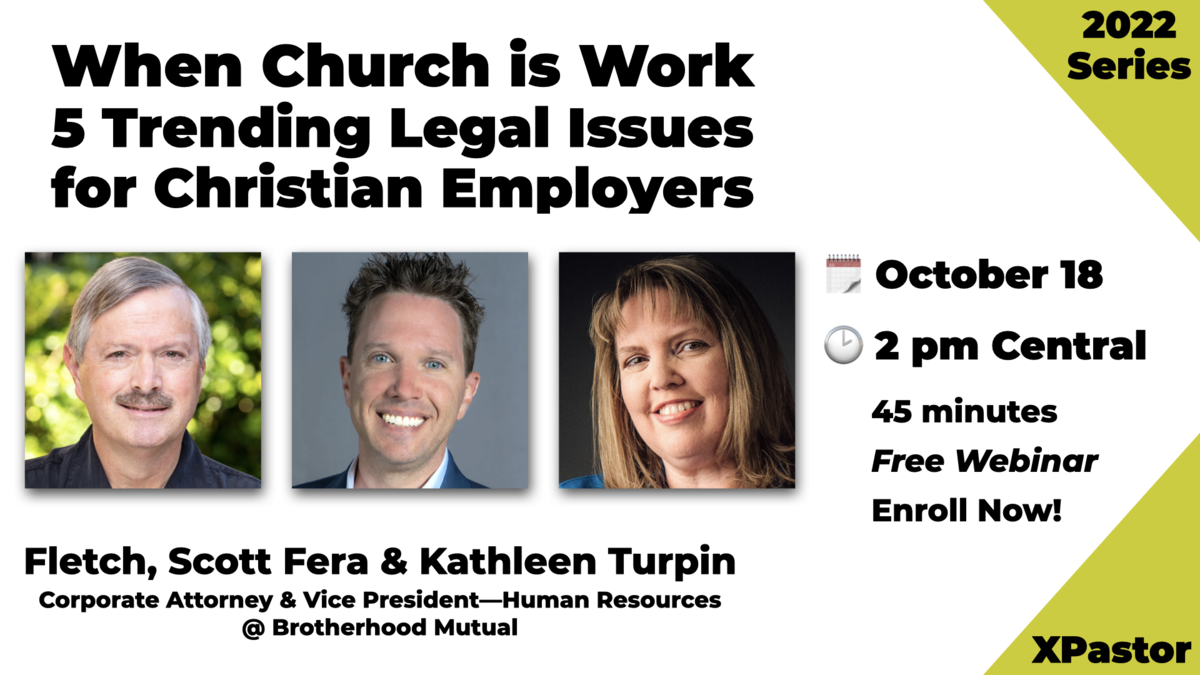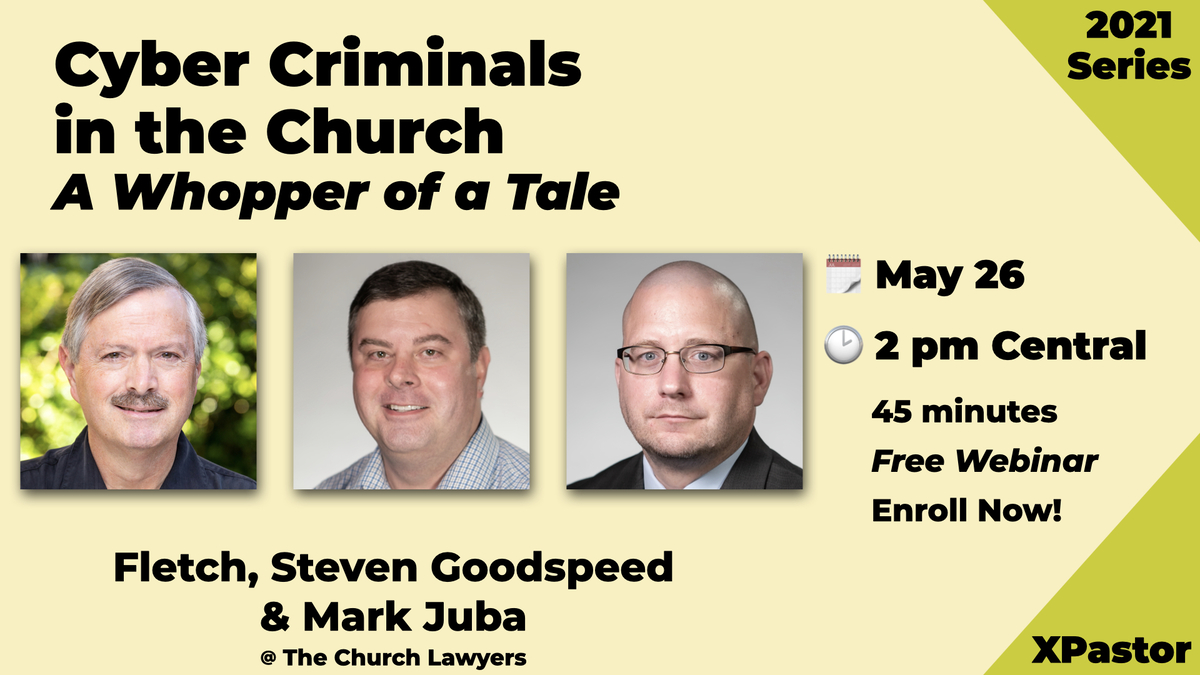XPastor recommends readers take special note of the resources provided by Watermark about the issue of Care and Correction. These resources are found in Appendix V and Appendix VI at the end of this case study and in the clarifications given by Watermark in the section Watermark’s Response to the Nation. When this article was written, the church had not yet commented publicly and much of the church’s information was not covered in the initial media accounts. These comments represent Watermark’s account of the scenario and stand in contrast with most media outlets and John Doe’s originally quoted statements. The church adds that the courts supported Watermark’s position at each ruling and Mr. Doe eventually agreed to Watermark’s original plan of care and correction.
Newspapers screamed the headline, “Is Public Shaming by the Church Legal?” The story ran coast to coast. Yet, the giants of the national news media had differing “facts” from each other—so, carefully read all the sources and decide for yourself …
The “facts” became fodder in blogs, legal circles and church meetings. Churches have been accused of being “too soft” on members who strayed from the path, but now a church was attacked as being strident and invading personal privacy. Who was right? ABC News summarized:
A female member of the Watermark Community Church, a non-denominational evangelical church in Dallas, Texas, reached out to her pastor after her husband had an alleged affair with another woman. But when the husband, identified only as “John Doe,” failed to reconcile with his wife. He said the church’s minister, Todd Wagner, shamed him from the pulpit.
The Dallas Morning News focused on “love:”
As Watermark’s senior pastor, the Rev. Todd Wagner, told his congregation last month: “Sue me. Nail me to a tree. Tell me you hate me. Misrepresent my motives. We’re going to love you anyway.”
Todd Wagner is the founding pastor and dynamic communicator of Watermark Community Church. The six-year-old megachurch has 3,000 people in worship. Besides launching dozens of ministries, Watermark recently raised $21 million in cash for its building program. Wagner is accustomed to the media. In 2004, Wagner was interviewed by Morley Safer for a 60 Minutes segment about the Left Behind book series.
Did Wagner single out an individual and share confidential material? Or, had Wagner not shared confidential material and acted according to biblical principles, consistent with Watermark’s established values and policies?
The Media’s Story
The story broke in late May, 2006. ABC’s Good Morning America noted:
“When the husband tried to resign from the church, Wagner allegedly threatened to mail a dozen letters—half to Watermark Community Church members and the other half to members of other churches who know and have worked with John Doe—detailing the alleged affair.”
The Dallas Morning News added: “The basis of the lawsuit was the church wanted to go outside of the church and the community at large, including potentially even their employers,” said Jeff Tillotson, attorney for the man and woman.
The Dallas court issued a temporary restraining order on April 28, but Judge Sheryl McFarlin dismissed the order on May 5. The Dallas Morning News quoted Doe’s attorney:
Mr. Tillotson said the case holds major implications for church members in the Dallas-Fort Worth area. “The typical notion of a Dallasite is that if you don’t like a church, you can just leave, and that’s apparently not shared by some of these churches,” he said. “And then when you say I want to get off this merry-go-round, their response is you can’t quit to avoid discipline.”
CBS also picked up the story and, later that year, The Dallas Morning News commented on the appeal:
The appeal was heard here in Dallas on Wednesday. No decision yet. But sitting through the oral arguments was both hugely entertaining and cause for some confidence in our judicial system. The three judges asked great questions and seemed fully engaged in the case. The process reminded me of the “lightning round” of a TV game show.
So, that’s the media’s perspective. But what about the legal issues and the church’s view?
The Root of the Legal Issue
The United States legal code includes the concept of ecclesiastical abstention. Mark Donald of Texas Lawyer writes: “That doctrine prohibits the civil courts from exercising subject matter jurisdiction in instances involving church doctrine, church governance and the church’s right to discipline its members for lapsing into behavior it deems immoral.” Note that this doctrine focuses on the civil courts—and so is derived from the First Amendment clause on free exercise of religion. The doctrine does not exempt the church from criminal statutes.
Doe hired Jeffrey Tillotson, a partner in the Dallas law firm of Lynn, Tillotson & Pinker. According to Texas Lawyer, Tillotson maintains about Doe that:
Doe also maintains that confidential disclosures were made in a secular setting—lunch—to his friend who also happened to be his pastor. Because Doe resigned from Watermark before disciplinary proceedings were instituted against him, and Roe never was a member of the church, neither can be subject to the church’s discipline, argues their attorney, Jeffrey Tillotson. “Under Watermark’s conception of the case, they could find some sin that my client commits 25 years from now, and still attempt to go through their Matthew 18 process.”
While that may be hyperbole, Tillotson takes the issue further by stating: “The way Watermark has described the application of the
[ecclesiastical abstention] doctrine, there are no limits short of child molestation and human sacrifice.”
Watermark responded to the suit with a legal brief to the 5th Court. According to Texas Lawyer, Watermark’s brief said:
- Doe and his wife signed a membership covenant with Watermark in April 2005.
- Doe’s wife first approached the church for counseling about her husband’s affair. “In response to her request for help, the church began a disciplinary process involving Mr. Doe to bring him back to his “religious practices” and “bring healing and restoration to the spouses of a broken marriage.”
- By signing the membership covenant, he waived any right to have the disciplinary proceedings remain confidential.
- In an April 26 letter, which is detailed in Watermark’s brief, church elders informed Doe that unless he responded to them by May 1, the elders would be obliged to “inform the body of Christ of such actions which do not coincide with your professed beliefs and reflect an unrepentant heart.
Kelly Shackelford, Watermark’s attorney, sees the case as seminal for religious freedom:
Doe v. Watermark Church – I will be arguing this case on September 27 at the Dallas Court of Appeals. It obviously covers the same big constitutional religious freedom issues as the Penley case does (whether individuals can now begin suing churches across Texas). Even worse, this one involved an actual Restraining Order prohibiting the church from engaging in religious speech on particular sins. We have had the injunction thrown out so far.
The legal issues center on the doctrine of ecclesiastical abstention and whether it applies to the Watermark case—and if so, how much?
Watermark’s Response to the Nation
Soon after Doe filed the case, Todd Wagner gave a sermon at Watermark entitled, “I Love You. So Sue Me.” He talked about the issues of “love, care and correction.” Further, he interviewed Watermark’s attorney, Kelly Shackelford, on the issues of the separation of church and state.
Also, Wagner discussed the concepts of “care and correction” in a 26-minute interview on the Drew Marshall Show, an internationally syndicated radio show.
In response to the articles in the media, Watermark’s Elders posted statements on the church’s website. Whereas the national media had used the terms “shaming” or “church discipline,” Watermark preferred to call the process “care and correction.” The church’s statement noted:
As a result of the interest and confusion generated by recent media accounts of a lawsuit filed by a Watermark member against the church, it is our desire to clearly summarize pertinent facts. Our purpose in sharing these facts is to allow those wanting to understand our actions the opportunity to deal with truths and not be forced to speculate.
- “Mrs. Doe” came forward asking for help related to challenges in her marital relationship.
- “Mr. Doe or Ms. Roe” did not reveal information or participate in a “private confessional” with any Watermark staff that resulted in this process.
- As part of the process, “Mr. Doe and Mrs. Doe” included other people, both members at Watermark and others outside Watermark, in the discussions regarding the marital struggle. There was never a one-on-one confessional between Mr. Doe and Todd Wagner, or Mr. Doe and any other staff or church member that initiated the Matthew 18 process, as has been reported in the news. As “Mrs. Doe” sought help to repair the marriage, she approached the church and, as a result, the church continued to reach out to “Mr. Doe” and later “Ms. Roe,” in accordance with Matthew 18:15-17.
Watermark Church asserted their perspective on the facts, sometimes directly countering items related in the media stories.
“Care and Correction” for Watermark is rooted in its values. The church desires to “radically commit ourselves to authenticity because nothing chases away skeptics faster then hypocrisy.” The church has what it calls the “ABC’s of Watermark”—with “A” for Authenticity.
An outworking of the desire for authenticity is what Watermark calls “Committed to Community.” The church believes that, “Belonging to our community requires a visible commitment to being intentionally involved with others in accountable and encouraging relationships,” meaning membership:
Membership in our body requires a tangible commitment to our purposes and our vision as outlined in our membership class. Everyone is welcome to attend our church and participate in our times of celebration and encouragement. It is our intention, however, to call all believers in our midst into membership.
Membership includes an annual self-evaluation and discussion with “your shepherd” at Watermark.
Comments by the Community
Many comments were made in blogs. While some admired the process, others detested it. Daniel Glick comments on the legal implications:
Legally, I think the question is whether the church has the right to send the letters in the first place. The plaintiff’s resignation is actually irrelevant to that question; there is no legal obligation to submit to church discipline, whether or not you are a member of the church … but I can see two possible grounds why the letters might be illegal: libel, or invasion of privacy.
Under the moniker “Sportin’ Life,” another comments on the moralizing:
I don’t necessarily think the legal system is the best way to deal with this sort of obnoxious, invasive moralizing. This type of Christian should instead simply be shunned by everyone decent. It’s interesting to remember, though, that in some cases those with “religious” credentials have the legal right to maintain silence about actual crimes that are reported to them by church members during a confessional moment.
The position by “Sportin’ Life” is interesting and has implications. Should the church not take moralistic positions? Delta commented on the use of the word “love”:
I’ve gotten so tired of Christians using the word “love” to mean hate or bigotry. Maybe Congress should consider a federal amendment protecting the traditional definition of love as being, “A deep, tender, ineffable feeling of affection and solicitude toward a person, such as that arising from kinship, recognition of attractive qualities, or a sense of underlying oneness.”
Delta’s views do not take into such concepts as, “speaking the truth in love” from Ephesians 4:15 or the popular concept of “tough love.” Boris comments about intimidation and love:
Shackelford isn’t just anybody: he is a trusted legal bigot endorsed by Southern Baptists, Focus on Dobson, all pro “Christianist white supremacist family” groups. It’s perfectly in line with a new definition of Christian love: the harder you hit, more you love. This is just one more example how Christian churches are seeking power to control and punish, not to change hearts. Inside and outside the church.
Like the quote from “Sportin’ Life,” Boris questions Watermark’s definition of the word love. His assertion delivers a punch, “the harder you hit, more you love.” Was Watermark being “unloving” in its response?
Conclusion
The blogs had some angry comments—perhaps what riled them the most was Watermark’s concept of “love.” The news media was not accustomed to dealing with churches that outspokenly advocate “love,” meaning authenticity-with-consequences.
Watermark told its own story. The church desires authentic Christians—“We radically commit ourselves to authenticity because nothing chases away skeptics faster than hypocrisy.”
Good case studies let you “solve the case,” so now it is your turn …
- Did you think Watermark crossed the line?
- What is “authenticity-with-consequences” and what is “love” in a megachurch?
- Do you see Watermark’s values in line with biblical values?
- Is authenticity a way to define how a church “loves” an individual?
As printed by Church Executive magazine, Summer 2007











